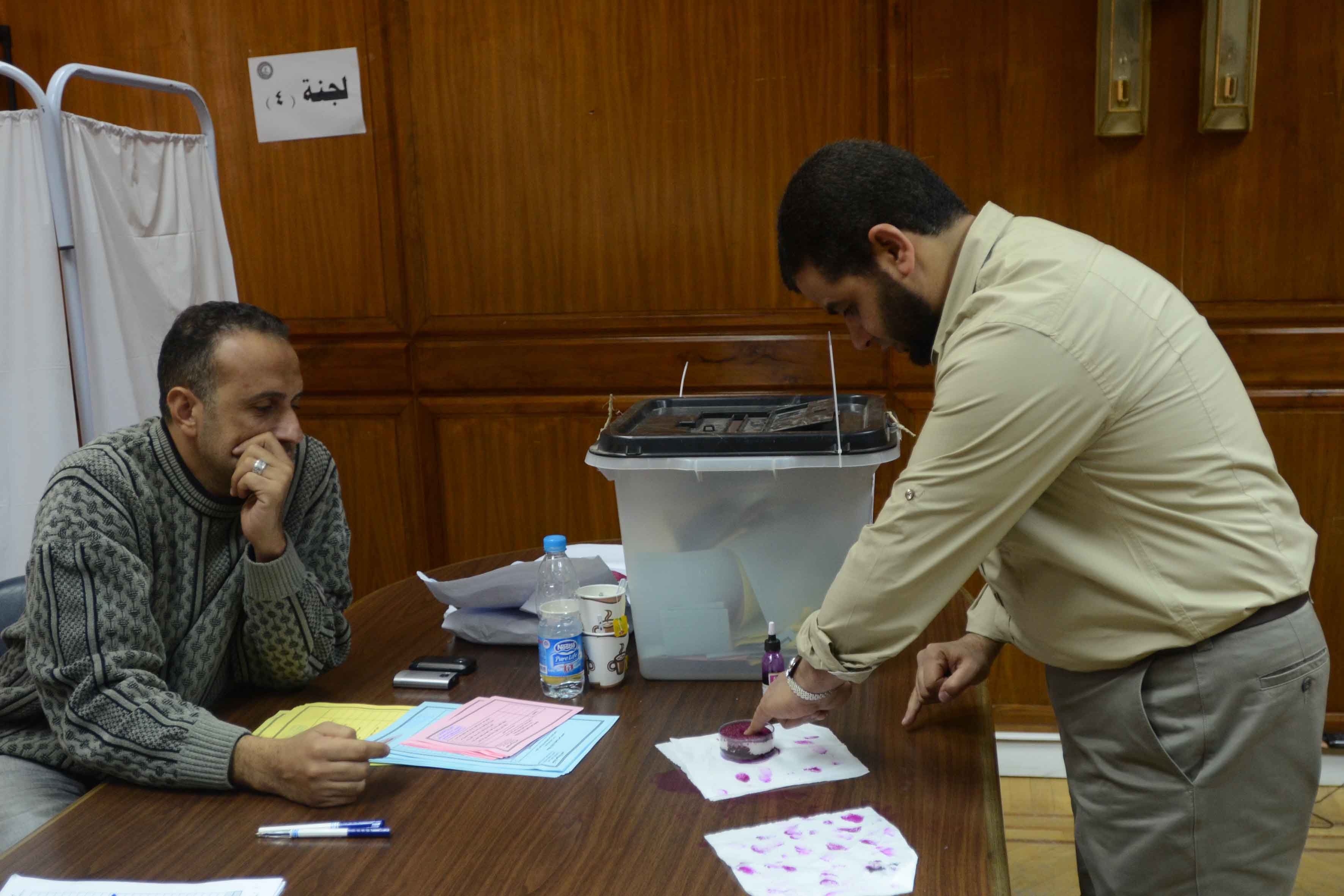
(Photo by: Ahmed Al-Malky)
The results of the midterm elections for the Pharmacists’ Syndicate reflected a noticeable decline in the Muslim Brotherhood’s popularity.
Preliminary results suggest that out of the 12 seats being contested, the elections’ list of the “Coalition of Egyptian Pharmacists” won two seats. Most of the candidates who ran under this party list are Muslim Brotherhood affiliates, according to the Pharmacists’ Syndicate’s official Facebook page.
The ten remaining seats went to members of the “Professional Pharmacists” elections list. The list includes members of opposition political parties such as the Egyptian Social Democratic Party (ESDP), Free Egyptians Party and Masr Al-Horreya parties. It also includes independent candidates without any political affiliation.
“We all joined the Professional Pharmacists’ list in a joint attempt to serve pharmacists nationwide,” said Ahmed Ebeid, one of the candidates who ran under the list.
Ebeid won a seat on the syndicate’s general board in the elections, representing pharmacists who have been in the profession for less than 15 years, alongside Haitham Abdel Aziz and Ashraf Mekkawi. The three new board members all belong to the Professional Pharmacists’ list.
Three other members of the Professional Pharmacists’ list also won seats on the general board, representing pharmacists who have been in the profession for more than 15 years. They are Mohamed Seoud, Gamil Baqtar and Ahmed Farouk.
The Professional Pharmacists’ list members also won four of the six seats representing nationwide regions. Hossam Harrira won as representative of the West Delta region, Ahmed Abu Douma was elected representative of the southern Upper Egypt region, Nour Al-Din Wagih became the representative of the northern Upper Egypt region and Marwa Khalil was picked as representative of the Cairo and Giza regions.
From the Coalition of Egyptian Pharmacists list, Mohamed Ramadan won as representative of the Mid-Delta region and Sherif Abdel Aal won as representative of the East Delta region.
Commenting on the elections results, Ramadan said: “The Egyptian Pharmacists’ candidates politicised the elections, turning it into a feud between the Muslim Brotherhood and the Copts.”
Ramadan denied personal affiliation to the Muslim Brotherhood. He also denied that the Coalition of Egyptian Pharmacists’ list belongs to the Muslim Brotherhood. “Our only sense of belonging is to our profession; pharmacy,” he said.
Ebeid attributed the decline of the Muslim Brotherhood’s popularity to what he described as their stagnant ideology in managing the Pharmacists’ Syndicate. “Most of the syndicate board members who were re-elected in 2011 had been in the syndicate board since 1992,” said Ebeid.
The elections were held on Friday. The participation was very low, estimated at around 12% of those eligible for voting, reported state-owned Al-Ahram.
Ebeid blamed this on the media blackout regarding the date of the elections and the pharmacists’ withdrawal from the elections scene due to the domination of a single Muslim Brotherhood faction on the syndicate board. Ramadan stated that the pharmacists’ sloth could be the reason for such low turn-out rate, coupled with the possible failure of communication between pharmacists.
The aforementioned results are not final. The official results are to be announced in a general assembly held at the Pharmacists’ Syndicate headquarters next Friday.
Mid-term elections are held every two years for 12 of the 24 seats of the Pharmacists’ Syndicate’s board. Six seats are allocated to the general board, and six other seats are for regional representatives.
The chairman of the syndicate is elected every four years. The current syndicate chairman, Mohamed Abdel Gawwad, was elected in 2011. The syndicate’s next chairman elections will be in 2015.


